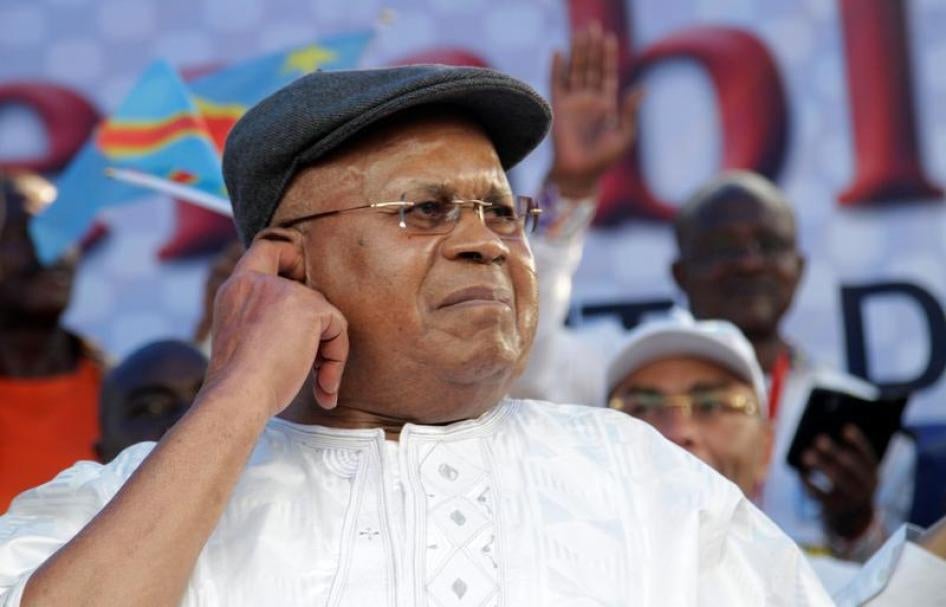Hundreds of Congolese gathered in Kinshasa’s Limete neighborhood after news broke last night that the Democratic Republic of Congo’s long-time opposition leader Etienne Tshisekedi passed away on Wednesday in Brussels. He had left Congo last week for medical treatment.
Police deployed to control the crowds outside Tshisekedi’s home and the headquarters of his party, the Union for Democracy and Social Progress (UDPS). Things grew tense, with protesters throwing rocks and shouting slurs against President Joseph Kabila; police responded with rounds of teargas. But grief and sadness were also palpable. Many of those gathered were in tears, others wrote messages for Tshisekedi’s family in a book of condolences; some wondered aloud what Tshisekedi’s death meant for the ongoing Catholic Church-mediated dialogue and Tshisekedi’s struggle for democracy and the rule of law in Congo. Congolese leaders and citizens of all political stripes, as well as foreign dignitaries paid tribute to Tshisekedi.
Known as the “Sphinx of Limete,” Tshisekedi had become a symbol of peaceful resistance and fighter in the struggle for democracy in Congo. He was one of the rare Congolese politicians who had consistently been on the side of the opposition for the past three decades, leading peaceful resistance first against the dictator Mobutu Sese Seko before taking on President Laurent Kabila and then his son and the current president, Joseph Kabila. Following the 2011 presidential elections, marred by allegations of widespread fraud and brutal repression, many Congolese believed that Tshisekedi was the real winner even though the official results put him in second place with 32 per cent of the vote. Tshisekedi never officially recognized Kabila’s victory.
Tshisekedi was also one of the few – if not the only – Congolese political leaders who could mobilize people to the streets. When he returned to Kinshasa last July, following two years abroad for medical treatment, hundreds of thousands gathered to catch a glimpse of him and hear him speak. Despite his age and deteriorating health, it’s largely thanks to Tshisekedi’s leadership and his willingness to ally with others that the opposition remained somewhat, and unusually, united in their 2016 struggle to resist attempts by Joseph Kabila to extend his presidency beyond the constitutionally mandated two-term limit, which ended on December 19, 2016.
The Catholic Church-mediated dialogue late last year gained its legitimacy in large part due to Tshisekedi’s blessing and the participation of his UDPS political party and the Rassemblement opposition coalition he presided over. This led to the signing of a deal on New Year’s Eve, which defused a potentially explosive situation and ostensibly set the country on the path toward elections in December 2017 and the country’s first democratic transition of power. But implementation of the deal has been painfully slow, raising doubts whether Kabila and those loyal to him are really committed to organizing elections.
Tshisekedi was due to lead a council to oversee implementation of the deal and the organization of elections. It’s now hard to imagine who will fill this void, and it remains to be seen whether the opposition will be able to maintain enough unity and legitimacy to see the deal through and maintain the pressure on Kabila.
Congo’s political leaders would perhaps pay the best homage to Etienne Tshisekedi by putting the interests of the country first and working together to fulfill his long-time dream of a truly peaceful and democratic political transition.









